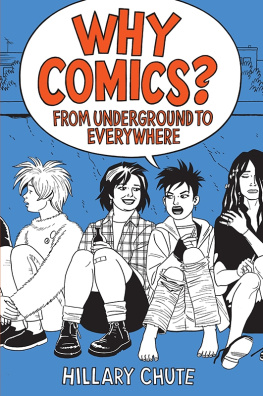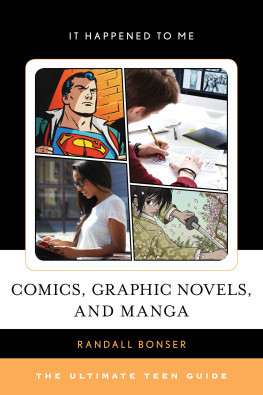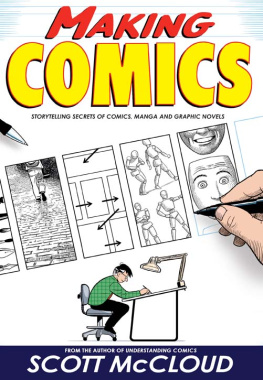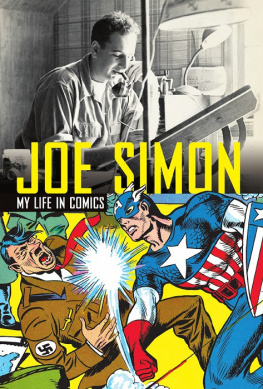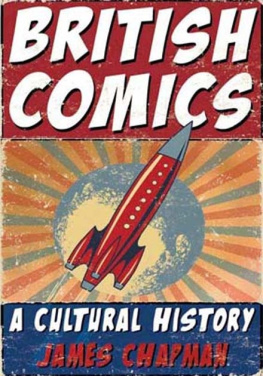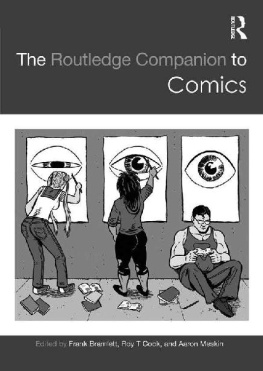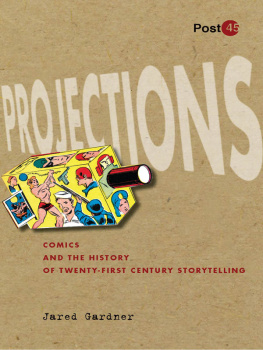To my cartoonist friends, for being so fascinating and making my life better because of it.
And to the undergraduate and graduate students I met while writing this bookincluding Chriswhose enthusiasm and ideas have inspired me so much.
CONTENTS
|
INTRODUCTION: COMICS
FOR GROWN-UPS? |
Its like learning a new syntax, a new way of ordering ideas.
Alison Bechdel, in The Comics Journal , 2007
I n 1995, a few years after his two-volume book Maus: A Survivors Tale won the Pulitzer Prize, cartoonist Art Spiegelman spoke to The Comics Journal about his chosen medium. It seems to me that comics have already shifted from being an icon of illiteracy to becoming one of the last bastions of literacy, Spiegelman suggested. If comics have any problem now, its that people dont even have the patience to decode comics at this point. When I tell people about Spiegelmans contentioncomics is actually one of the last bastions of literacy they are usually surprised. It is the polar opposite of what many are used to thinking about comicsor still might think.
Despite a few globally very well-known works, like Maus , about Spiegelmans parents experience in the Holocaust, the whole comics medium still often gets mistaken for its most popular genre: superheroes. Fantasy is a genre , humor is a genre , romance is a genre a style, a category that comes with a set of approaches and expectations. Comics, on the other hand, is a medium in its own rightnot a lowbrow genre of either art or literature, as it is sometimes understoodand it can be about anything. (For this reason, however awkward comics is can sound in a sentence, I use comics with a singular verb when appropriate.) And while it can be about anything, there are some things that comics is particularly good at. Scott McCloud, the son of a blind rocket scientist from Lexington, Massachusetts, told me about the dominant view with which he contended when he set out to write his 1993 book Understanding Comics : Comics, they have staples and superheroes and funny animals, the end, what else is there to talk about?... And I thought,... Look how much bigger the territory is, and look how many cool things come in. On YouTube, in the comments section for the video of my 2015 public conversation with McCloud, one viewer wrote: I show it to arty friends to show comics are not just Spider-Man and nerds. Twenty-five years after Understanding Comics , an ingenious treatise on comics itself composed in comics form, made its claims, old associations persist despite the huge diversity of contemporary comics. Comics today is an art form with an ever-increasing popularity and range.
Today, works of comicsalthough many aredont need to be about superheroes, a genre that began in 1938 with Superman, a character created by two high school friends from Cleveland, Jerry Siegel and Joe Shuster, when they were teenagers. Comics works also dont need to be funny, although of course many of them are. This is understandably confusing to those who dont happen to know the history because comics are, after all, in the United States and United Kingdom, called comics. For... presumably some reason. In Italy the form is called fumetti , which means little puffs of smoke and refers to speech balloons. In France the form is called bandes dessines , which means drawn strips. Both of these designations, unlike the English iteration, refer to formal elements.
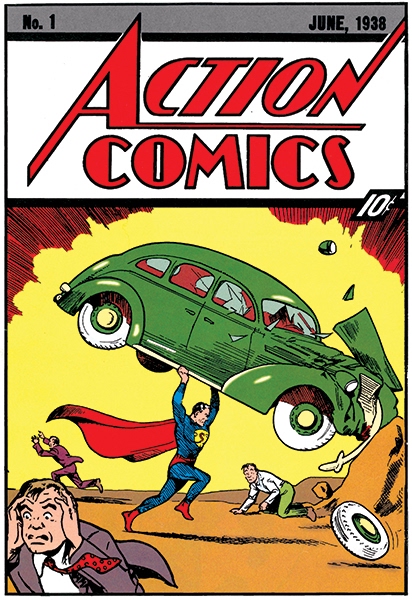
Supermans debut in the comic book Action Comics #1, by Jerry Siegel and Joe Shuster, cover by Shuster, June 1938, published by Detective Comics, Inc. (later DC Comics). A mint copy sold on eBay in 2014 for $3,207,852, the most ever paid for a single comic book.
June 1938 DC Comics. All Rights Reserved.
Comics has branched out from the realm of the specialized and the cult into countless corners of culture in the twenty-first century. Comics today seizes the public imagination in books and periodicals, in museums and galleries, at massively populated comics conventions like San Diegos Comic-Con, and even on Broadway, with the multiple Tony Awardwinning 2015 musical adaptation of cartoonist Alison Bechdels graphic memoir Fun Home: A Family Tragicomic , the story of a lesbian cartoonist and her closeted, suicidal father. Speaking of Broadway: Lin-Manuel Miranda, the megastar creator of the rap musical Hamilton , told the New York Timess By the Book column in 2016 that the last great book he read was Saga , the galactic warlove story graphic novel series by Brian K. Vaughan and Fiona Staples. Miranda had also tweeted about the series, and a new interest and audience was born. (Online mash-up: Saga4Ham.) In 2015, the North American comic-book industry raked in an estimated $1.03 billion from print and digital comic-book and graphic novel sales, a new twenty-year high. And graphic novel sales in bookstores rose 22 percent in 2015, according to comics industry site The Beat (the article ran with a big image of Saga volume 4). In a time when many lament the decline of the print book, comics maintains crucial attention to the book as object (not that it neglects online platforms, where it is also flourishing). In 2016, even as sales of adult fiction in bookstores fell, sales of graphic novels continued to rise.
Comics is a feature not only of mainstream popular culture, but also of university culture, the art world, and even global politics. While there were actually comic-book burnings in the late 1940s and 1950s, when many adults saw comics as a loose and dangerous form of youth culturea role later absorbed by rock n roll, and then video gameslibrarians and professors are now outspoken champions of the form. A Columbia University librarian, Karen Green, recently stated that graphic novels are the most frequently requested material in our Ivy League request system. One can now get an accredited undergraduate or graduate degree in comic artand today cartoonists like Spiegelman are sought-after public intellectuals. Comics is unprecedentedly popular in the art world, a fact marked by a special issue of the worlds most influential art magazine, Artforum , on comics and fine art in 2014. There have been numerous high-profile gallery and museum exhibits featuring comics around the world. And comics has persistently been in the news since January 2015, in controversial contexts. The debate provoked by the Charlie Hebdo massacre in Paris brought the practice of cartooning and what it means into the global spotlight, with dozens and dozens of demonstrations around the world featuring pens held up into the air, making the drawing pen a potent symbol of freedom. People may not have agreed with the Charlie Hebdo cartoonists satirical aims, but everyone had to acknowledge that hand-drawn lines on paper, even in the age of the Internet, have enormous power.
Comics also has substantial resonance in cultural debates in America. This is particularly the case in education, because of the affective force of its visuals, a feature of especial concern in the age of trigger warnings and censorship dustups. Comics made national headlines in the summer of 2015 when a group of freshmen at Duke University refused to read Bechdels Fun Home , which was the suggested common first-year read for incoming students, because of its explicitand gaycontent. One of those students even published an op-ed in the Washington Post online titled, Im a Duke Freshman. Heres Why I Refused to Read Fun Home. The idea of comics as common readingwhich is to say, the idea of literature that shows something, for instance, sex, in addition to describing it verballysparked numerous conversations in print and online about the goals of college education and the differences between looking and reading, activities the medium of comics productively intertwines.

